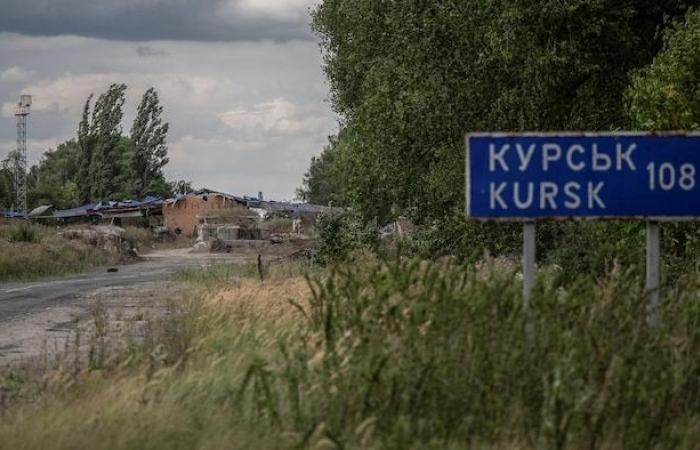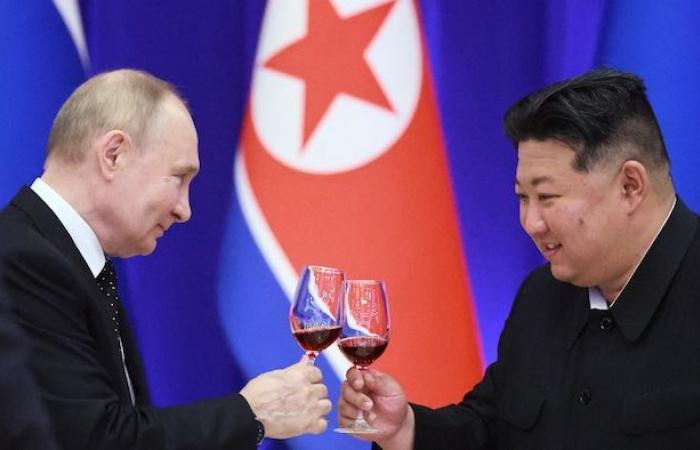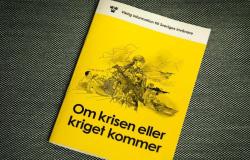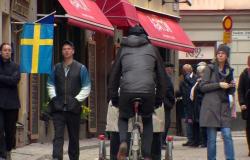Around 10,000 to 12,000 North Korean soldiers are on the front lines in Russia’s Kursk oblast, where Ukraine has controlled around 100 square kilometers of territory since this summer. Why are these foreign troops fighting on behalf of Moscow? Experts take stock.
Will North Korea change the course of the conflict?
Considering that approximately 1000 to 1600 Russian soldiers
die every day on the front, North Korean troops could give a breath of air
to the Russian army for ten days at most
immediately states retired Canadian Armed Forces Colonel Pierre St-Cyr, who was also defense attaché at the Canadian embassies in Moscow and kyiv.
This is not what will really change the course of the war, not at all, unless the influx of North Korean soldiers continues and the contingent of 10,000 to 12,000 becomes larger. […] There, there will be changes on the military level.
Cet influx of soldiers
also allows the Russians to take more time to train their own soldiers, adds Frédéric Labarre, lecturer at the University of Quebec in Montreal (UQAM) specializing in foreign relations of Russia and other Soviet states. Without proper training, these new recruits do not allow Moscow to achieve its military objectives as easily.
It also makes it possible to avoid mobilization more general
in the Russian population, adds Mr. Labarre. The general secretary of theI’LL TAKEMark Rutte, estimated on October 28 that more than 600,000 Russian soldiers have been killed or injured on the battlefield since the start of the conflict.
Open in full screen mode
A border crossing point with Russia in the Kursk region is seen in Sumy region, Ukraine, August 11, 2024.
Photo: Reuters / Viacheslav Ratynskyi
The West and its ally South Korea were quick to characterize the troop shipment as an escalation. Is it really one?
According to retired colonel Pierre St-Cyr, what is changing is the political dimension of the gesture
. We have really just had an open, clear, precise axis between Moscow and Pyongyang.
The arrival of this new force in the conflict adds an important political dimension
and demonstrates the scope of the alliance between Vladimir Putin and Kim Jong-un which could be called upon to strengthen in the months to come, believes Mr. St-Cyr.
The rapprochement worries the West’s allies in Asia, as demonstrated by the reaction of South Korea, theoretically still at war with its northern neighbor since 1953, which was the first to sound the alarm.
Many fear that the Russian-Ukrainian conflict will spill over into Asia and destabilize the region, analyzes Mr. St-Cyr.
The North Koreans have an extremely powerful army on paper, but they have never been in a war situation
. This is what is very destabilizing. It is also particularly important for South Korea, because there, for the first time, they will face a situation where there are soldiers who are gaining experience in a high-intensity war on the European front. . It’s absolutely an escalation
affirms for his part the professor holding the Chair of Ukrainian Studies at the University of Ottawa, Dominique Arel.
The countries of Europe are a little taken by surprise, because they emptied themselves in armaments
and that their defense industry is not up to par
observe Pierre St-Cyr. Everyone looks to the United States
to meet weapons needs.
However, the return to power of Donald Trump and the transition of power which is beginning could muddy the waters on the continuation of this conflict, since the president-elect has already announced that he intends to reduce aid to ‘Ukraine.
Meanwhile, Putin can boast of having his allies with him on the battlefield, notes Mr. St-Cyr.
What is the benefit for North Korea?
North Korea is under heavy international sanctions for the development of its nuclear program and its intercontinental missile (ICBM) tests, recalls Pierre St-Cyr.
According to South Korea’s intelligence services, Russia pays North Korean soldiers around US$2,000 per month. Most of this sum goes directly into the coffers of the Pyongyang regime.
Open in full screen mode
In June, Russian President Vladimir Putin and his North Korean counterpart, Kim Jong-un, signed a cooperation treaty aimed at freeing themselves from the “hegemony” of the United States. (Archive photo)
Photo : Reuters / Vladimir Smirnov
Kim Jong-un’s army also receives technological support for the development of weapons and satellites, as well as for its nuclear program, says Mr. St-Cyr.
North Korean soldiers have not been in active combat since 1953, and the battlefield in Ukraine is an opportunity to learn the ropes of modern combat. Except that it’s a tough school
because they risk paying a heavy price in human life, observes retired colonel Pierre St-Cyr.
Yes, they don’t have field experience, but they still have military indoctrination which is not to be taken lightly
notes Mr. St-Cyr. Military service for North Koreans is compulsory – lasting 10 years for men and 7 years for women – meaning that 40% of the population is currently in the army, he adds. .
Almost half of the shells used on the Donbass front come from North Korea, adds Dominique Arel. That’s around 7 million shells in a year and a half, while Europe and the United States each struggle to supply a million shells per year.
Is it legal?
The United Nations Charter provides, in Article 51, the right of a State to defend itself in the event of a violation of its sovereignty. However, states sometimes interpret this right broadly to justify their actions – as the United States did to justify the invasion of Afghanistan after the September 11 attacks.
Dominique Arel describes Russia’s justification for invading Ukraine as a legal screen
. Three days before the announcement of his special operation
in February 2022, recalls Mr. Arel, the Russian president recognized independence
of the two self-proclaimed republics of Donbass (Donetsk and Luhansk) and signed, the next day, a mutual assistance pact with these two self-proclaimed countries
.
The protection of Donbass, presented as an act of self-defense, served as legal justification for the invasion, explains Professor Arel.
Any country can ask a foreign country to come to its aid if it is attacked. And this is what Russia did following the Ukrainian breakthrough at Kursk [où ont été envoyés les soldats Nord-coréens]
indicates Pierre St-Cyr. He notes that the Ukrainians requested international help citing similar legal grounds, but that the West did not go as far in its involvement, fearing an escalation.
On the other hand, criticizes the retired colonel, we could have – as the Ukrainians requested at the beginning of 2022 – established a closed air zone above Ukraine. […] We preferred not to go so as not to violate the supposed red lines that Vladimir Putin had set for us.







